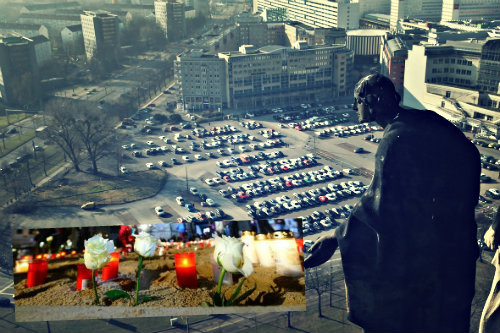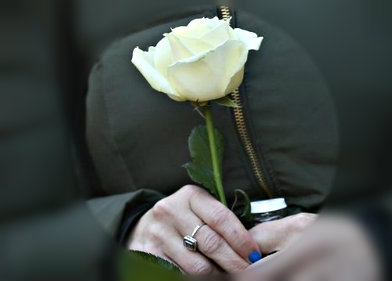Germany commemorated the Allied firebombing of the German city of Dresden seven decades from when it happened. The country solemnly remembered the people, numbering to tens of thousands, burned alive during the attack Friday, February 13, in a mournful church service. A human chain was also formed — a symbol for peace and resistance against racism.
The bells of the Baroque-domed Frauenkirche [Church of Our Lady] rang out as the commemorative service started. Delegates from the other German cities which also suffered Allied attacks during WWII – Coventry, Breslau, Ostrava and St. Petersburg – lit candles which signify for the call for peace. Dresden bombing survivors were also present during the said event.
Subsequently, about 10,000 people formed a human chain by joining hands together along the Elbe River and across the bridges. Although neo-Nazi marches were a common occurrence in the past Dresden bombing anniversaries, the right-wing activists were seemingly absent in this year’s bombing anniversary.
On the other hand, Antifascists banded on the squared outside the church where the service was held with a green banner that plead for people to “Fight for a humane society. Take action against the Nazis”.
In his speech at the church which was left in ruins to stand as a symbol for years before it was rebuilt and topped with a golden cross of peace made by a son of a British bomber, German president Joachim Gauck expressed how the bombs and the fire “indiscriminately annihilated both guilty and innocent”.
Yet, German suffering wasn’t the only thing remembered during the commemoration of the Dresden bombing. The Holocaust was also remembered.
Survivors of the bombing laid white roses at the Neustadt station, the train station where Jews destined to die in Riga were brought and packed inhumanely into trains. White roses symbolize anti-Nazi resistance.
Gauck added that Germany not only remembers the victims of the German bombings, the country also will not forget those who were victimized by Nazism.
“We know who started this murderous war… so we’ll never forget the victims of German warfare,” he stated.

